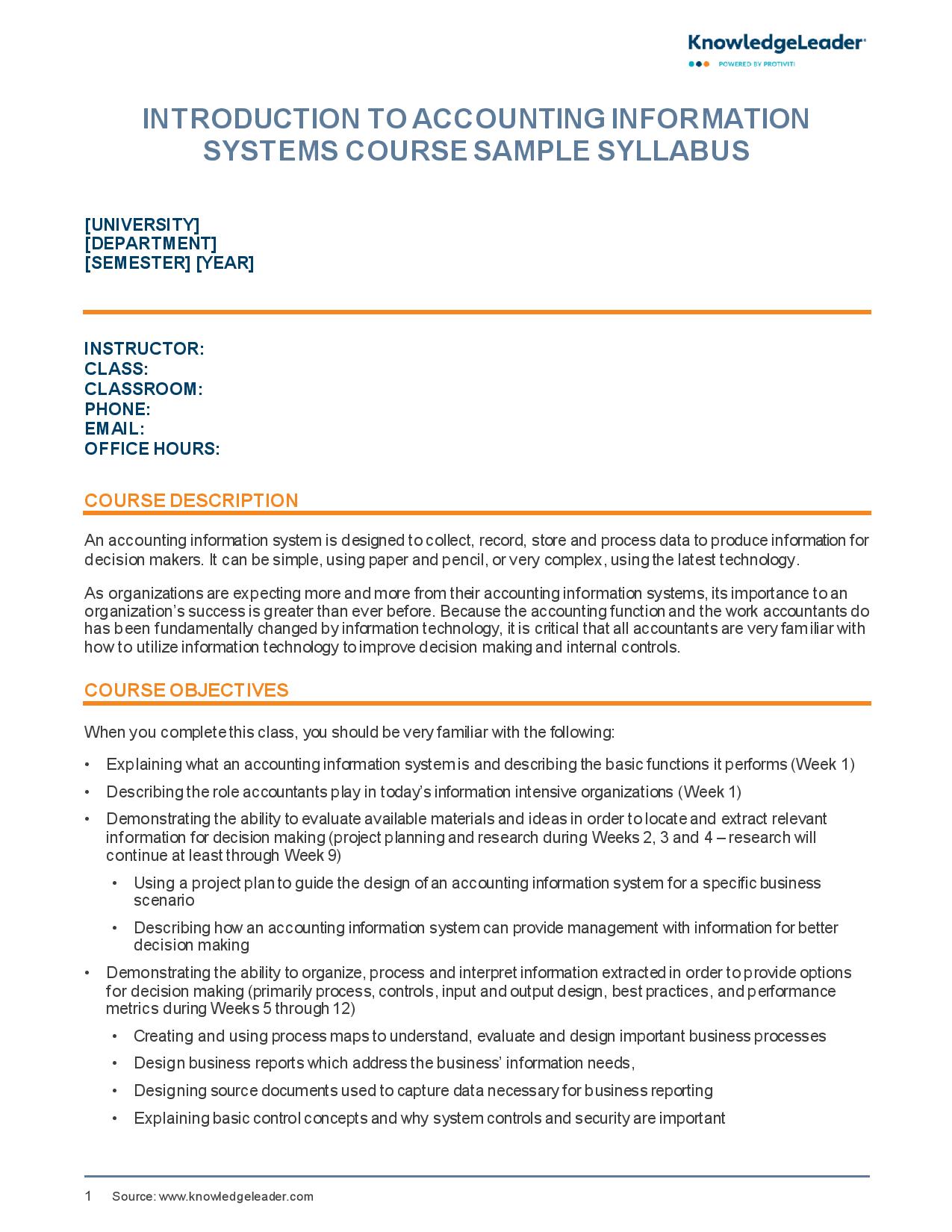Introduction to Accounting Information Systems Course Sample Syllabus

Thank you to James Marlattt from the University of Colorado at Boulder for contributing this content!
Course Description:
An accounting information system is designed to collect, record, store and process data to produce information for decision makers. It can be simple, using paper and pencil, or very complex, using the latest technology.
As organizations are expecting more and more from their accounting information systems, its importance to an organization’s success is greater than ever before. Because the accounting function and the work accountants do has been fundamentally changed by information technology, it is critical that all accountants are very familiar with how to utilize information technology to improve decision-making and internal controls.
Course Objectives:
When you complete this class, you should be very familiar with the following:
- Explaining what an accounting information system is and describing the basic functions it performs
- Describing the role accountants play in today’s information-intensive organizations
- Demonstrating the ability to evaluate available materials and ideas in order to locate and extract relevant information for decision making
- Using a project plan to guide the design of an accounting information system for a specific business scenario
- Describing how an accounting information system can provide management with information for better decision making
- Demonstrating the ability to organize, process and interpret information extracted in order to provide options for decision making
- Creating and using process maps to understand, evaluate and design important business processes
- Design business reports which address the business’ information needs,
- Designing source documents used to capture data necessary for business reporting
- Explaining basic control concepts and why system controls and security are important
- Describing future trends in financial reporting (XBRL)
- Demonstrating the ability to evaluate options in order to make an appropriate, supported conclusion
- Describing and modeling a relational database and demonstrating how information captured in a database can be extracted to answer business questions